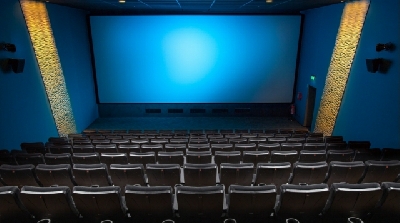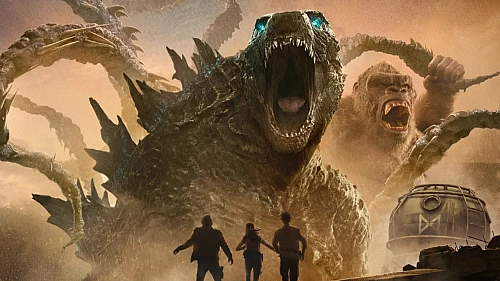Over the past decade, Netflix has taken over the entertainment industry by storm. In such a short space of time, Netflix is nominated for most awards at the Golden Globes and the Oscars, something that years ago would be unfathomable. Before, big Hollywood stars would not even dream of taking a TV role as it would be seen as a step backward in their careers, but now, all the A-listers have signed streaming deals and are producing movies or TV shows that are directly published on Netflix.
Nobody can doubt that Netflix’s service is top quality at a reasonable price. It is very similar to Spotify with its algorithms, finding content that is suitable to your preferences. We have written a piece on Scified about how the algorithms work, so give it a read.
Going to the movies is still popular but not anywhere where it used to be. Traditionally, couples would go on a date to the cinema but nowadays it's just “Netflix and chill”. The price for tickets to a movie theatre does not help either. It costs more for 2 people than it does to buy a monthly subscription to a streaming service, which is not taking into account the price of popcorn and drinks. It seems that it is a dying industry, but what are cinemas doing to combat the decline? Not only are streaming services eating up their business but they are also reeling after being closed because of the COVID 19 pandemic. It is uncertain where they go from here. AMC, a huge US company of movie theatres, recently announced a third-quarter loss of $224m, with its revenues increasing to $763m which in the long run is not a sustainable business going forward. The last time something like this happened was when we saw the decline of iconic US department stores like Sears which have been destroyed by internet behemoth Amazon.
The shift, which has happened rather rapidly, should be no surprise. It has happened in most industries whereby consumers are now using online services as opposed to land-based options. For example, in the tourist industry, nobody visits travel agents anymore to book their accommodation or flights, instead, they use one of the many online platforms like Skyscanner. Moreover, in the gambling industry, many players prefer to play their favorite casino games like blackjack and roulette from an online operator. This trend has taken away business from land-based casinos. Before players would have to go to a local casino but in some countries, this is not possible. Take for example in Thailand, casinos are prohibited, but it is possible to play online with the use of a VPN. There are comparison sites like Asiabet that help you get off to a good start by listing all the best bonuses including no deposit bonuses and free spins and advising on the legality of betting. Additionally, they also provide reviews on only safe operators. This model is way more accessible to the consumer which ultimately leaves land-based casinos worse off in the Western world.
Because of the ease and playing from the comfort of your own home, it shares similar qualities to why people prefer Netflix and this trend is only becoming more prevalent. As the pandemic forced people into lockdowns, remote working became the new normal, ultimately changing people's buying habits, leaving most land-based businesses out of pocket. The major issue with land-based businesses such as movie theatres is that before any revenue comes in, there are a lot of overheads to pay for. These include rent, staff wages, electricity, etc. Online businesses do not have this issue and can market directly to their audience for a fraction of the cost.
As Netflix and other streaming services have invested heavily into production, they are able to control the whole supply chain, all the way to distribution, essentially cutting out all the middlemen. The same thing has occurred in other industries such as music and books. The future does not look bright for movie theatres, they will have to redesign the business model to offer more value to consumers. Currently, people are pleased with their Netflix subscription and are not as interested in going out to watch movies as they once used to be.

The Sun is dying and Ryan Gosling is our only hope – New Project Hail Mary featurette!
New promotional video for Project Hail Mary details the film's plot outline and Ryan Gosling's role.

Sci-Fi Steampunk Western series Chrome Bounty Unveils First Look at Raw Leiba as the Gritty Outlaw Ransom Cogs
ALBUQUERQUE, NM – Production is heating up for the highly anticipated sci-fi steampunk Western series, Chrome Bounty, as producers reveal a firs...

Project Hail Mary (2026) sneak peek debuts new footage from the movie!
Ryan Gosling gives us a sneak peek of Project Hail Mary during the Winter Olympics, showcasing new footage!

Final trailer for Project Hail Mary – the Ryan Gosling sci-fi movie has landed!
Ryan Gosling must work with an intelligent alien creature to devise a way to save Earth from destruction!

What’s Next For The Alien Franchise?
Explore what’s next for one of the world’s most successful franchises in Alien – movies, tv shows, games and more.


